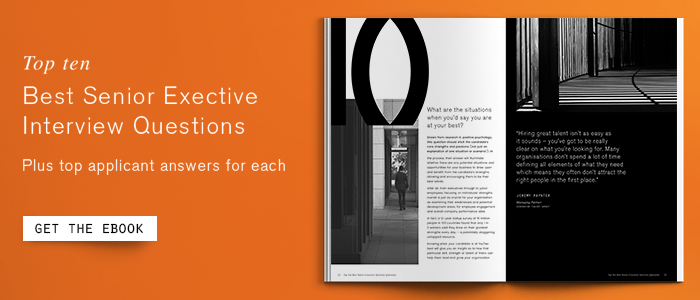05th December 2017
Our Top Takeaways From The Deloitte HR Trends For 2018
Fuelled by technological innovations and social shifts, HR is evolving at a rapid pace.
Bersin by Deloitte’s recent report HR Technology Disruptions for 2018 investigates how these monumental cultural shifts will manifest at a granular level throughout HR departments in the next year. Our team of Organisation Development and HR experts have studied the report, and weighed in on Bersin’s key findings, highlighting those we feel are most poignant for the Australian HR industry.
The single biggest insight is the challenge (and the opportunity) that the rapid advance of technology is offering the HR function. Driven by Artificial Intelligence and Augmented Reality, technology solutions in the HR field are getting smarter and faster. HR professionals need to be increasingly tech-savvy, agile and innovative to get the most out of the fast-changing landscape.
Read on to learn more, and find out how technology will disrupt, shape and influence outcomes in the HR function over the next twelve months.
10 HR Tech Disruptions for 2018
The Bersin by Deloitte HR Report explores tech trends anticipated to affect the HR industry next year. Here we take a closer look at these changes, and how organisations can make the most of the rapidly transforming technological landscape.
1. A New Focus On Tools For Workforce Productivity
Key points:
- HR is experiencing a shift from talent management to team and work management.
- The next big challenge for HR is increasing team productivity, as burnout, lack of focus and low employee engagement threaten organisations.
- We need software which boosts productivity and helps teams work together more effectively.
Our view: Technology automating HR practices has been around for a long time now, but the shift is now towards making the whole world of work easier. As a result systems that help people work more efficiently together, do more work in less time, or cope better with work-life balance are on the rise.
Apps like Slack and Microsoft Teams have started to do this. More tech is likely to emerge that can drive better productivity and engagement across your whole organisation.
2. ERP & Human Capital Management (HCM) Move To The Cloud As The Talent Market Reinvents Itself
Key points:
- Whilst cloud based HR is considered the industry standard, we are still moving to the cloud, and will be for a while – currently only 40% of companies use cloud HCM solutions.
- For large companies cloud migration often takes 2-3 years. Most companies spend months choosing a vendor, considering it to be a game changing decision.
- Some of this emphasis is misplaced, and would be better focussed on improving team and talent management software.
Our view: The first HCM systems were clunky or complex add-ons to ERP systems selected by finance teams, and often designed as an afterthought. More and more separate, specialised (and ideally integrated) systems are facilitating a range of services – mostly cloud based – to teams.
The ideal system needs to cater for a range of uses – including recruitment, setting goals and development planning. It’s likely that the best of breed solution may vary for different areas, and a segmented approach may be more effective than dependence on one system.
New challenges will be creating systems that are adaptable across teams and individuals, as well as navigating the rise of the gig economy. The rise of chatbots and AI will undoubtedly reshape how services are provided.
3. Continuous Performance Management Has Arrived
Key points:
- Continuous performance management by building a new, ongoing process for goal setting, coaching, evaluation, and feedback, is becoming increasingly common.
- Cloud HCM vendors need to develop features to keep up with the need for continuous performance management.
Our view: Now that the unfounded delight of scrapping annual performance reviews has subsided, most people realise that performance management needs to becomes a more fluid, continuous process. Again, the challenge is for tech providers to shape their systems to meet a more flexible, ongoing process of goal setting, measurement and assessment.
And as team structures and episodic engagements become more prevalent, HCM system vendors have to meet these challenges as well. No-one seems to have a total solution yet, so expect to have multiple systems in place for a while longer.
4. The Explosion Of Feedback, Pulse Survey, And Analytics Tools
Key points:
- The “employee feedback market” is growing rapidly.
- Real-time survey systems, sentiment analysis software and organisational network analysis (ONA) tools are commonplace.
- New open workplace feedback tools are emerging, offering pay transparency, as well as open feedback and benchmarking.
Our view: With a compression in cycle times driven by continuous performance management, the market for app-based culture surveys is exploding. Australian app CultureAmp is growing internationally. Technology facilitates a process of continuous listening and scanning for issues or opportunities that can be reviewed and acted on quickly. Who wants to wait 12 months to do a culture survey, and another three months for results and actions to occur?
Anonymous tools like Glassdoor will likely continue their growth, and the big game will be a single elegant solution that integrates performance management, HCM and culture surveys. Maybe it’s being developed as you read this blog!
5. The Reinvention Of Corporate Learning Is Finally Here
Key points:
- A new wave of corporate learning platforms are being produced and adopted throughout the marketplace.
- These include experience platforms, micro-learning platforms, contemporary LMS systems, and new AI-based systems. VR based learning is also becoming a reality.
Our view: The concept of classroom-based learning is fast fading, with technology allowing more video-driven, episodic and remote learning to occur. Bite-sized modules can then be consumed in any place and at any time.
Virtual and Augmented Reality (VR and AR) may be the key to a killer learning app. Perhaps we’ll be practicing our interactive coaching skills with a AI-based avatar who can mimic expected (and unexpected) interpersonal responses?
6. The Recruiting Market Is Rapidly Changing
Key points:
- Recruitment is thriving with innovative tech, and every major company will have to adopt a wide range of high quality tools to compete.
- These tools include automation software (like chatbots) for high volume recruitment, open sourcing tools for skilled job recruitment, automated applicant tracking systems (recruitment management systems), and better assessments (including widely accessible video assessment and culture assessment tools).
- Hybrid jobs are becoming the norm, as traditional job titles fade. New tools are required for finding people with the right combination of capability and flexibility.
- Diversity is now key to recruiting. New tech aims to remove bias from job descriptions and interviewing.
Our view: Generator Talent’s executive search specialty means we’re acutely aware of how technology provides affordable, fast access to global candidates.
So while candidates are getting more insights on companies through Glassdoor and the like, recruiters are getting more candidate insights as well. Great recruitment partners who know how to leverage technology to a client’s advantage are now more important than ever.
Could AI become a more reliable recruiter of talent than a human, and be programmed to observe emotional markers that humans might miss? What we do know is that AI has an ability to continuously learn and adapt, so over time we should expect it to become a more reliable expert system.
7. The Wellbeing Market Is Exploding
Key points:
- HR departments are recognising wellbeing initiatives as the key to optimum “human performance.”
- This means there is an increased demand for tools which can improve productivity, reduce cognitive overload and remind people to practice healthy lifestyles.
Our view: Until recently wellbeing was a personal, out of work concern. From increased leave to health assessments, lifestyle initiatives, mindfulness, resilience and sponsored yoga sessions, companies are taking more responsibility for wellbeing – because it pays off.
Focus has shifted from the cost of programs to subsequent improvements in engagement and performance. The tech challenge here is helping people find solutions that make a healthy lifestyle easy, and provide valuable insights.
Could my Fitbit tell my computer I’ve had too much seated screen time, raise my stand-up desk and put some music for stretching on? That would be cool.
8. The People Analytics Market Has Grown And Matured
Key points:
- Companies are viewing employee related data as increasingly important.
- A wide range of cloud-based tech is available for managing employee data. The most progressive vendors are starting to apply AI to their offerings.
- Relationship analytics, including HMRS data, wellbeing data, relationship data and sentiment data are on the rise.
- As a result of this proliferation of data, HR departments must consider ethics, privacy and the transparency of their data management processes.
Our view: Big data has hit HR, and the challenge is knowing what to do with it. As HR divisions are being renamed Employee Experience Departments, their focus is shifting to technology-driven solutions that can maximise engagement, team performance and relationships at work.
For example, employee performance data can be matched with wellbeing data, then cross-checked with culture and feedback to compose an analytic tapestry of employees. As a result of these insights new ethical and privacy concerns are born – who owns the data and how can it be used?
9. Intelligent Self-Service, Communications And Employee Experience Tools
Key points:
- There is increasing demand for integrated self-service employee experience platforms which bring case management, document management, employee communications and help-desk interactions together.
- Exciting new tools are leveraging AI, smart chatbots, intelligent agents, and games to revolutionise HR functions like training, expense reporting and time tracking.
Our view: The technology-fuelled innovations detailed in points 1 to 8 need to be integrated with each other in a way that can benefit both organisations and individuals. Can some of these currently disparate systems be synthesised in a way that provides a relatively seamless, optimised and valuable experience for all involved?
And can the promise that HR technology offers be realised in a sensible, accessible and economic way? We think it’s a matter of waiting to see – and staying a little sceptical until proven wrong.
10. HR Departments Are Becoming Digital And Innovative
Key points:
- HR tech is moving faster than ever, as departments proactively experiment with new performance management models, learning strategies, ways to reduce bias and recruitment techniques.
Our view: If you’re a HR executive with a slight aversion to technology and change, then your head might be spinning by now. Increasingly HR leaders have to be digitally adept, innovative and willing to lead, so they can harness tech trends that are disrupting the industry. It might be necessary to disrupt yourself before someone else does.
We’re seeing more HR departments experimenting and rolling out system solutions in some key areas. Beyond this, larger and more progressive departments are starting to shape their own agendas and look towards customising some of the technology solutions to best meet their needs.
Next steps
As HR professionals take on more and more technology, it’s important to maintain strong interpersonal communication. While new apps and masses of big data can help you get in touch with plenty of top talent, interviews are still key for screening candidates.
Asking the right questions will help you cut through the masses and ensure a quality hire. Download our free guide to the best senior executive interview questions to reshape executive interviews and secure the best leader for the job. Click the image below to get your copy.
Categories: General




